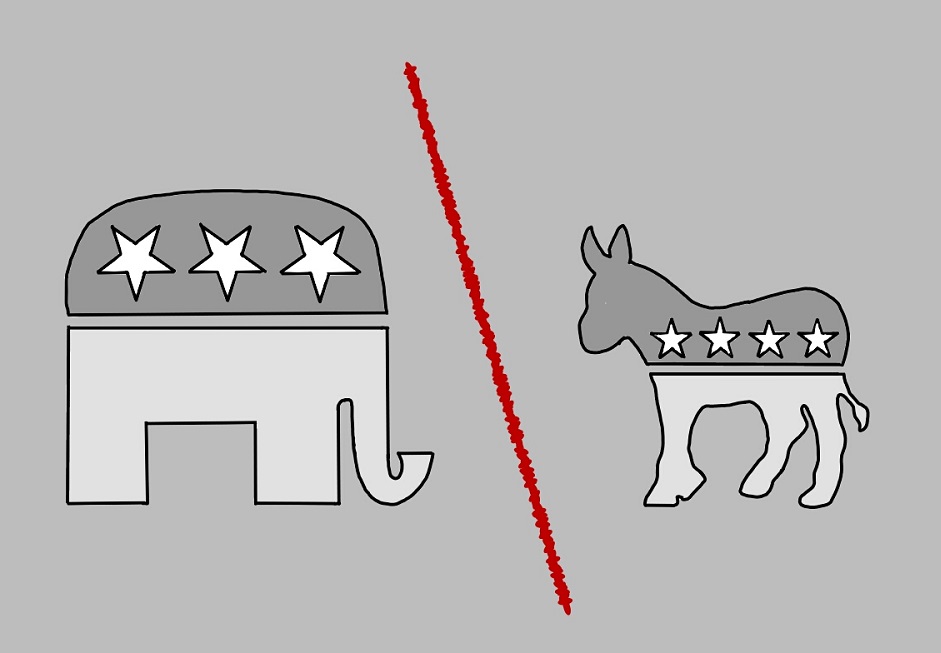Opinion: Overcoming political dichotomies
When one sees only in black and white, they will bring the world nothing but red. Harsh political and ideological dichotomies create strife. Because of this, those outdated dichotomies need to be retired in favor of more nuanced views. The world is complicated, regardless of whether or not we attempt to simplify it. Rather than performing the work of sorting out moral quandaries on a case-by-case basis, people tend to oversimplify and place moral and political issues into boxes.
American politics is permeated with assumptions of the existence and regularity of mutual exclusivity. If a citizen is in favor of protecting against incitement, they are automatically opposed to the freedom of speech. If someone argues for increased protection for basic human living through the implementation or enhancement of social welfare programs, they are labeled communists. On the other hand, when people discuss the inherent dehumanization present in many forms which social welfare programs are carried out, they are automatically decried as cruel and uncompassionate. These unyielding perspectives are what keep elections from bringing about positive, dynamic change. Once the beliefs and values on opposing sides of an issue are treated as mutually exclusive, discourse transforms into combat, and any hopes of real change quickly dissipate.
Issues of free speech and social programs are not simple, nor are solutions easily come by. Nevertheless, they are treated as single answer problems which could be solved if the other side were not so stubborn and self-serving. By dealing in these moral absolutes, rather than positive progress, greater schisms are formed in our political realm. The intricacies implicit within free speech alone should be enough to make anyone pause. There is no fine line between free speech and incitement or hate speech. Things are never that simple. By pretending there is, in fact, some readily discernable distinction, politicians lock each other into endless controversy and dispute.
Oversimplifications result in a fog which prevents rational, measured discourse. When condemnation becomes absolutely one-dimensional, and is divorced from its context, it produces nothing beneficial whatsoever. Issues of foreign relations and political conflicts remain strained as politicians continue to simplify complex disputes. One example of oversimplification in modern conflicts is the Israel-Palestine conflict. International discourse surrounding this issue seems to hover around positions of radical polarity. There is little to no middle ground, and neither side tends to evaluate the conflict in its full context. Without understanding the history of European imperialism and the conflicting legal agreements — the Sykes-Picot Agreement and the Balfour Declaration — the current tensions make very little sense. The former promised modern-day Israel and Palestine to Arabs, while the latter promised it to Jews. Beyond this, even ignoring more ancient contexts, clashes between Israel and Palestine are in no way one-sided. Israel has been subjected to incessant terror attacks and violence from Palestine for decades. On the other hand, Palestine has been occupied and marginalized. Israel has been robbed of its security, and Palestine has had its dignity snatched away.
Politics shouldn’t be reduced to mere dichotomies. Politics represents the fundamental messiness of life. As a result, it will always remain contentious, and won’t have solutions which perfectly solve all of life’s problems. Instead of attempting to turn away and deny the reality of life’s messiness, we must embrace it and confront issues with a more nuanced approach.







